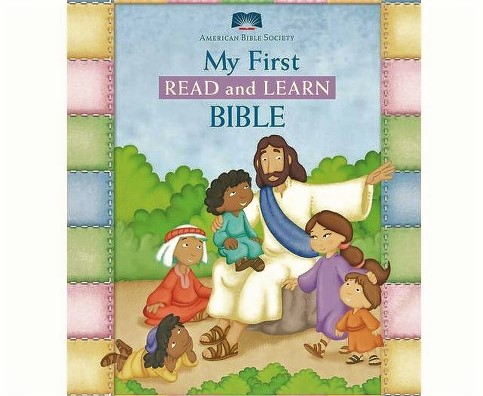Best Book of Bible to Read First Is it true? As a new Christian, it can be daunting deciding where to start in reading your Bible. Many start at Genesis with its roots in history before reading Exodus for its amazing tale of Israel’s journey towards their Promised Land.
Some readers opt to begin their study of scripture with Ephesians or Colossians, which offer solid foundations on salvation and Christian living; others might begin their journey by looking at Proverbs or Ecclesiastes first.
The Gospel of Mark
The Gospel of Mark is an ideal starting point because it is one of the shortest books in Scripture. In it we learn that Jesus is both the Messiah and Son of God who came to save us from sin and death; while also emphasizing his strength in defying evil forces. Additionally, it discusses faith and discipleship – two essential components for personal transformation.
It is an ideal book for those new to or curious about Christian belief, as it focuses on Jesus as an individual, emphasizing his humanity more than any other book in the Bible and showing how He fulfilled Old Testament prophecies.
Mark is an ideal book for beginning readers because its fast-paced and action-filled style make it easy to understand. Additionally, Mark’s writing style more easily connects with modern readers than other biblical works that use symbolism or feature different literary styles.
Other helpful Gospels to read include Matthew and Luke. Both books cover Jesus Christ’s Jewish roots and miracles while discussing interactions with people and teachings from Jesus – most famously John 3:16 “God so loved the world that He gave His one and only Son, so that all who believe in Him may not perish but have eternal life”. Romans is another book which can provide useful insight for newcomers to Christianity as it provides explanation of Christianity and how salvation comes through Jesus.
The Gospel of Luke
If the lengthy Gospel of Mark is too intense for your tastes, Luke may offer a more appropriate alternative. Luke takes more time telling Jesus’s tale while emphasizing more his teachings than miracles he performed.
Luke wrote his Gospel not only for Jewish readers but also Gentiles who are interested in Jesus and his message and ministry. Luke emphasizes the universal scope of salvation through many stories such as Good Samaritan parable, Rich Man and Lazarus parable and Prodigal Son parable.
Luke chronicles Mary and Joseph’s journey to Bethlehem for Jesus’s birth, as well as some Old Testament prophecies which foretold his coming. Luke then traced His lineage back to Adam as proof of how much God loved each of His creations.
If you want to explore the Old Testament, I recommend starting by reading Genesis and Exodus chronologically. These books provide an in-depth view into God’s relationship with his people at their beginning, setting the scene for what Jesus says about himself in the New Testament. Once finished reading these two, move onto Romans; this book addresses sin in our world as well as what it means to have salvation through Christ!
The Gospel of Matthew
The Gospel of Matthew is the opening book in the New Testament and one of three synoptic Gospels. It recounts God’s revealation through Jesus as Messiah who calls together, gathers together and forms new disciple communities.
Matthew collects several parables that illustrate Jesus’ controversial message – such as throwing seed on four different kinds of soil, mustard seed and pearl – which demonstrate its inclusive nature and challenge the Israeli authorities’ claims of divine authority. Matthew includes these parables to demonstrate this tension.
Matthew’s Gospel is also significant for its grand conception of God as one who claims his people as his own and fulfills promises – this theme pervades every verse and chapter in Matthew’s book.
Matthew gives us an in-depth account of Jesus’s genealogy as well as the events surrounding his infancy (St. Joseph’s perplexity upon learning of Mary’s pregnancy, the tribute paid by Wise Men and flight into Egypt), major events of Jesus’ public ministry (such as Sermon on the Mount, Healing lepers, calling disciples and then betrayal, Crucifixion burial and Resurrection of Christ) as well as major moments during Jesus’ public ministry (like Sermon on the Mount and Sermon on the Mount sermon and healing lepers before eventually betrayal, Crucifixion, burial and Resurrection of Christ).
Matthew’s Gospel, with 24 chapters, is also the longest of the three Gospels; yet its format makes it accessible and less daunting to readers than Luke’s account of Jesus’s humanity in other Gospels.
The Gospel of John
The Gospel of John stands out for its unique theological perspective that made an indelible mark on Christian doctrine. It centers around Jesus’ teachings and reveals him as God’s son sent to bring light–eternal life–into a dark world. Jesus often upset people’s assumptions in this gospel by showing how salvation comes freely through God’s grace rather than merit or work alone. Furthermore, John 3:16 has become one of the most popular Bible verses as it beautifully summarizes his message of salvation and peace for Christians everywhere!
As opposed to Mark’s fast-paced account of Jesus’ activity, John’s Gospel emphasizes the deeper significance of events as they happened. John offers an in-depth view of Jesus’ ministry and includes many spiritual discussions such as that with the Samaritan woman (John 4:1-32). John provides the most philosophically and theologically insightful Gospel account; here Jesus is understood as being “The Word” which existed prior to creation before becoming flesh so He could become God’s sacrificial Lamb to take away sin.
John, the son of Zebedee and an apostle in Jesus’ inner apostolic circle, wrote the Gospel of John. Between AD 70, when Rome besieged Jerusalem, and AD 100, John most likely wrote his gospel; both Jewish and Gentile audiences were probably among its readers. John’s Gospel contains extensive detail regarding Jewish customs and Palestinian geography that might otherwise remain unfamiliar; furthermore it presents Jesus as being fulfilled many Old Testament themes while inaugurating a new covenant between God and man.








Leave a Reply